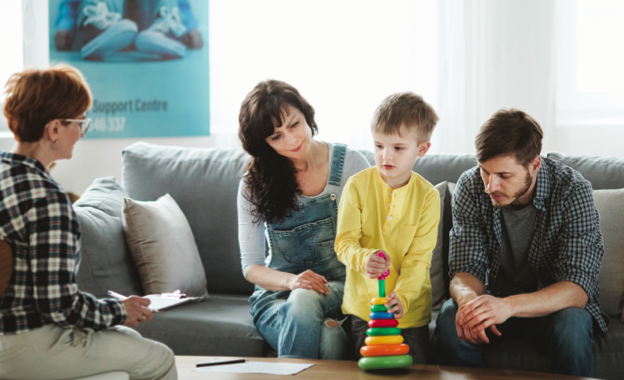
Parenting Corner – Thriving with the Help of Thanksgiving Ideals
November 1, 2021
As Thanksgiving approaches, and we move nearer to the end of the calendar year, it’s a natural time for reflection.
This past year has been eventful on a national and local level, in a way we may have never experienced as parents before. Not all losses have been shared equally. Some families will be grieving for loved ones whose lives were lost in the pandemic; others will be focusing on the struggle of rebuilding after Hurricane Ida, and some will be coping with both.
Day-to-day challenges will probably continue as children return to school with the uncertainty of quarantines and closures. Some parents may be looking forward to the traditions of the holidays; others of us may be wondering how to forge ahead with holiday rituals when lives might feel very different than they did a year or two ago. Here are some ideas for integrating Thanksgiving ideals with the reality of what families may have recently experienced.
Don’t be afraid to talk about what’s happened.
On one hand, children and adults alike are probably tired of thinking and talking about COVID or hurricanes. And, you may think that if a child doesn’t seem visibly disturbed about something, initiating a conversation about it will only upset them.
But sometimes, there are feelings under the surface, and giving kids an opening is enough to prompt a meaningful dialogue: “I’ve been thinking about all the changes we’ve had this past year, it’s really been a lot. What stands out for you?” Or, if there has been a death in the family, bring up a fond memory so your son or daughter realizes you welcome the opportunity to talk about your loved one.
If a child doesn’t want to talk, encourage them to draw a picture or write a story of what’s happened, or to keep a journal. Be sure not to minimize whatever feelings he or she does share, even if such feelings surprise you or are very different from your own. Siblings who have had similar experiences may also have different perspectives depending on their age and temperament, and all need to be validated.
Share what’s been helpful.
What’s your child’s coping style? What strengths have served him or her well this past year? You can share your observations with them: “I noticed talking with your friends, even when you weren’t in school with them really seemed to help, is that right?” And since we are always role-modeling for our children, don’t forget to share what works for you (“Going outside for a walk, even if it’s early in the morning, really helps me feel good all day.”).
Bring it back to your family’s identity.
Creating a feeling of safety and security is one of our biggest tasks as parents, and that feels tough when so much in this world feels out of our control. Younger children depend on us, though, to keep their world as predictable as possible, and older children and teens need us to try and make meaning out of what’s happening. Think about creating and referring to a family motto or saying that implies the strength you share together: “We’re the Smith family. We work together to take care of each other.” It may sound a bit corny, but the goal is to create a feeling of connectedness between all family members that can buffer the challenges of the outside world.
Gratitude is not just for Thanksgiving Day.
It may be hard sometimes to feel grateful if there have been a lot of unwelcome changes, and it’s not a panacea to deep suffering, but expressing appreciation, even for small things, can be beneficial. Keep a list of things on the refrigerator that people in your family are grateful for, so kids and adults can add to it throughout the year. Share something good that happened during your day every night at dinner or bedtime (along with something not-so-good, so people can support each other). Help children extend their circle of concern for their family into the wider world. There are lots of opportunities for helping others, whether raising money or collecting items for people in communities affected by Ida, cooking meals to put in community refrigerators here in New Orleans, or simply checking in on a neighbor who might need our help.
Lisa Phillips, a licensed social worker and parent educator at The Parenting Center at Children’s Hospital, is a contributor to the award-winning “Parenting Corner” column. She can be reached at (504) 896-9591; chnola.org/parentingcenter.

